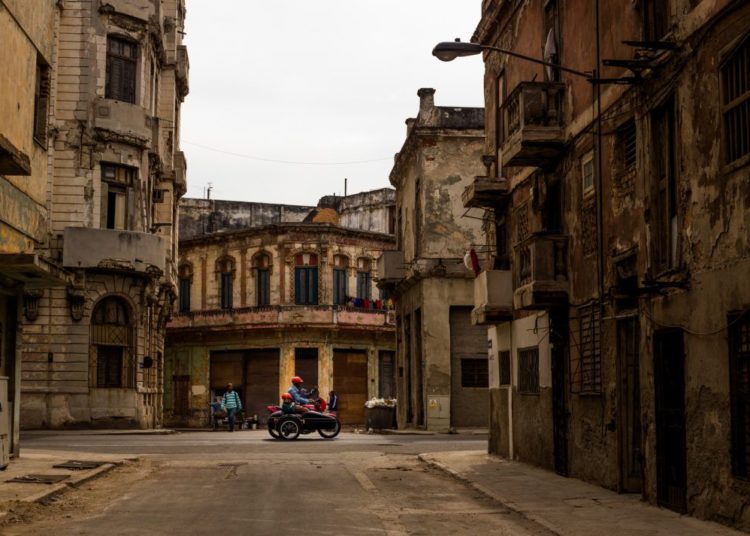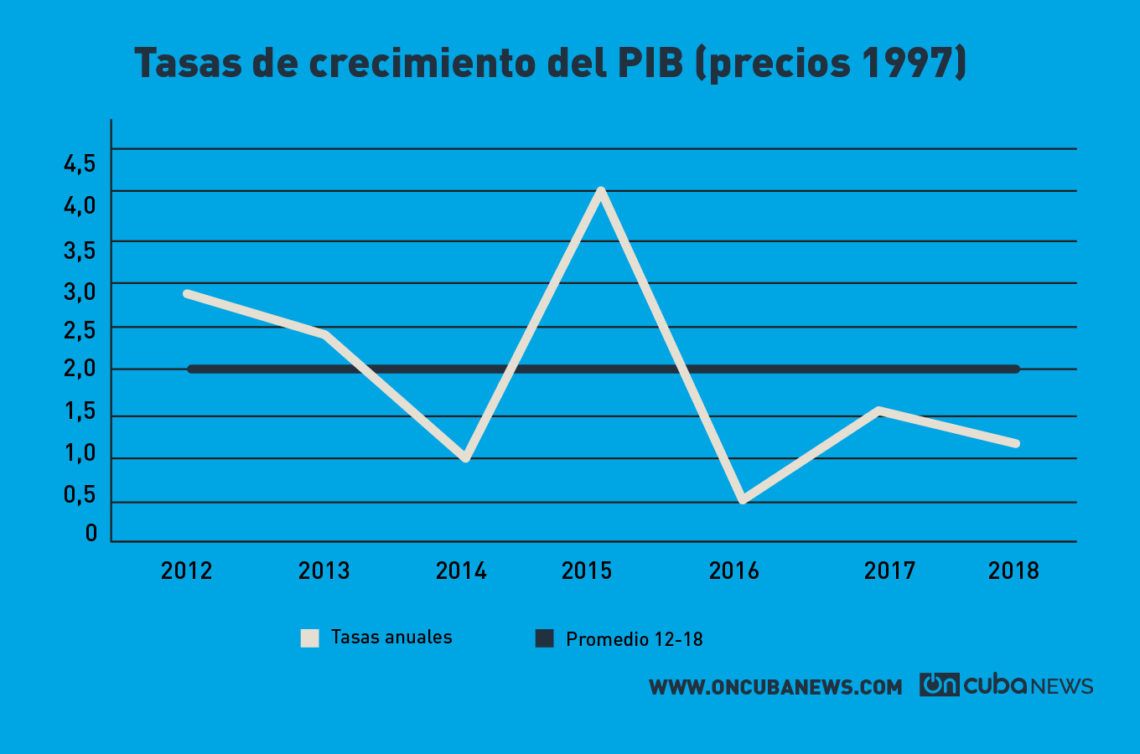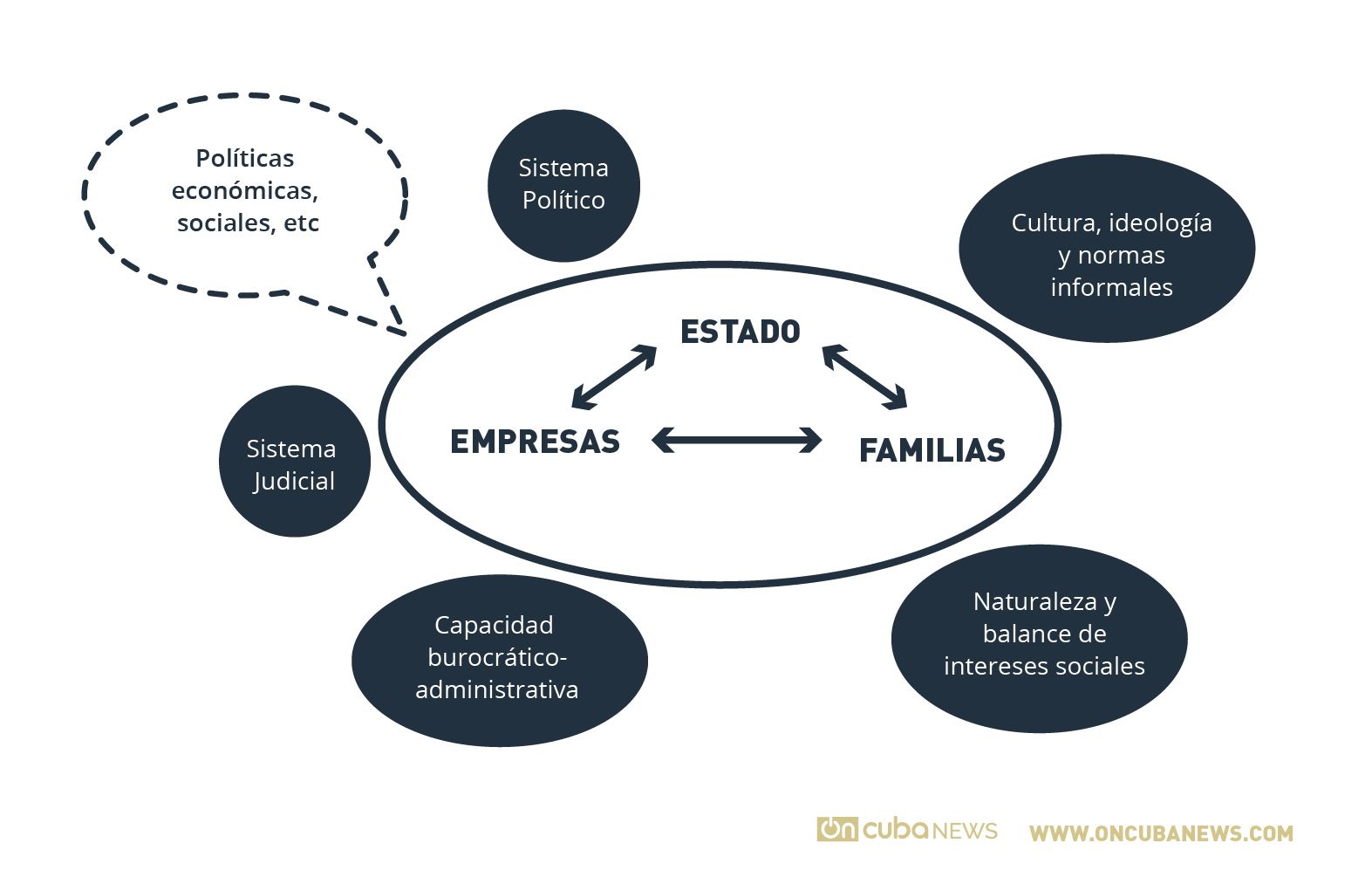I have written this column driven by the discussions around the papers presented at the Annual Seminar of the Center for Cuban Economy Studies of the University of Havana, which that center has held year after year for more than 20 years and this time with the additional motivation of celebrating its 30 years of being founded. It also coincides with the first 30 years of the beginning of the crisis we call the Special Period. Cuba survived that crisis, heightened by that “small obstacle” that is the U.S. blockade. But surviving the crisis is not developing.
They have been 30 tremendous years, of transcendental events, of almost constant marches and countermarches.
At the beginning of that Period… changes were introduced that promoted greater decentralization in the state business sector in search of greater efficiency. Foreign investment was identified as a positive ―though unwanted― element for our battered economy; self-employment was given greater openness ―it is true that reluctantly; and the dollar was introduced into the national circulation of currencies, to de facto create the exchange and monetary duality in which a generation of Cubans has already been born and lived.
Then we witnessed a first countermarch that led to restrictions to self-employment; the slowdown of foreign investment projects, with new demands and requirements for them; the non-renegotiation for the continuity of some and the closing of others together with a strong offensive to reduce the commercial branches of foreign companies in Cuba. In addition, the exit of the dollar from current operations was decreed to be replaced by the CUC and a single account was created that, among other effects, motivated the economy to start undergoing a process of real devaluation of the CUC. This has brought us to the famous CL and the complex financial situation that the country must solve today.
As of 2007, President Raúl Castro took a group of measures that meant an opening that had never been experienced before. In his own words, he recognized the strategic nature of the need to undertake a reform of the state business system, made explicit the support of the political leadership for self-employment, introduced and defended non-agricultural cooperatives and raised the strategic need to attract and use foreign direct investment; a new law and a policy associated with it and the Special Mariel Development Zone were approved. The migration law also changed and for the first time in almost 60 years Cubans could opt for a visa for any country without having to be commended by anyone.
But again the countermarches appeared. The creation of the Higher Organization of Corporate Management that, far from achieving more autonomy for the state enterprise, generated greater centralization and bureaucracy, distancing the decisions away from where they should be made, and converting them into dwarf emulators of their own ministries: a parasitic system of the state business system. The policy towards self-employment was also “revised” with more restrictions. And we are still expecting greater facilities for foreign investment that allow the country to reduce the time it takes to approve new businesses and achieve speedier bureaucratic processes that facilitate their establishment. Meanwhile, the approval of new cooperatives seems like a process submerged in some lost glacier in the Himalayas. It is also true that in recent months we have fortunately seen a certain rectification of the August 2018 decrees on self-employment. It must also be said that the recently announced new measures regarding it represent greater openness.
………
Caption:
GDP growth rates (1997 prices)
Annual rates
Average 12-18
………..
But the list and the money still don’t tally. Although both Raúl Castro Ruz and Miguel Díaz-Canel Bermúdez have emphasized the need to overcome resistance, to change stagnant minds, to achieve coherence between promulgated policies, reality and the programmatic documents approved by all the Cuban people, including the new Constitution of the Republic that will be proclaimed in just a few days.
If we all agree, why is it that what should occur doesn’t happen? My friend Goyo wonders.
To reduce those reasons to whims, to ill will, to incompetence, to laziness and indolence of some, would be to adopt a too simplifying position, although we can also find a little of all that. However, I prefer to use other tools to try to understand, at least in part, this great contradiction and the complexity of the processes that Cuba faces.
Maybe we can find some answers in the institutional economy.
……….
Caption:
Politicas = Economic, social policies, etc.
Sistema = Political system
Cultura = Culture, ideology and informal regulations
Estado = State
Empresas = Enterprises
Familias = Families
Sistema judicial = Judicial system
Capacidad = Bureaucratic-administrative capacity
Naturaleza = Nature and balance of social interests
…………
Assuming a certain international environment, the graph illustrates the basic idea of the institutional economy from which the behavior of the main economic agents of any country (that is, families, the State and enterprises) as well as the policies put into practice, are determined by the quality of the rules of the game (the institutions) and that these in turn are generated and conditioned by and from the political system, culture, ideology, bureaucratic and administrative capacity and the judicial system. They are the ones who generate and at the same time must comply with the policies of all kinds that define the incentives under which these three agents operate.
They work within an environment shaped by the conditions of the international economy and politics and by national policies and conditions. On the first little can be done except exercise a good capacity for adaptation and negotiation. On the second you can do almost everything.
National policies must allow strategies to be realized at the lowest possible cost, facilitating and encouraging those transactions between the three agents.
The coherence of the policies, of the programs, of the plans, will depend greatly on whether these systems are aligned and produce COHERENT rules of the game with the objectives of each country; that is, incentives adapted to those realities and purposes.
It occurs, however, that each of these five systems has a relative degree of independence, delay and low capacity for reacting. Hence the great difficulty of achieving the desired coherence.
The learned culture, the professed ideology, the political preferences, the created interests, the capacity to facilitate or obstruct laws and decrees that have been issued, have some degree of influence on those rules of the game.
It happens in all countries, but the fact that it happens in everyone with a certain degree of greater or lesser impact can’t serve as comfort, but rather only as a reference.
I illustrate it with our day-to-day facts:
- We aspire to have more efficient state enterprises, but the conception of the plan doesn’t leave enough room for these enterprises to seek that efficiency.
- We hear that the results of the state enterprises have improved but the effects of this improvement don’t translate into economic growth.
- We aspire to state enterprises investing more but the “contribution” they are forced to deliver conspires against that purpose and is part of the reasons for their under capitalization.
- We want to improve and grow in exports, but we have enough “negative incentives” (exchange rate, wages, excess restrictions) that hinder that purpose.
- We need innovative state-owned enterprises, but the way in which the “plan” and the regulations for the creation of wages and the distribution of profits are conceived are contradictory to that purpose, in the same way that the culture of risk and competition is not promoted.
- We declare that the “non-state sector” is more than a traveling companion for a prosperous and sustainable socialism, but we keep a positive list of jobs and a law on cooperatives still hasn’t been issued nor a law on small and medium enterprises.
- We want to keep our highly qualified workforce but the wages paid encourage emigration to other sectors or other countries and professionals are not allowed to exercise “self-employment” in their own professions.
- We need to raise the investment rate, but we don’t encourage the mobilization of “non-state” national resources for this.
- We think first in controlling before promoting.
- We are better trained in identifying threats than in taking advantage of opportunities.
The reasons why these contradictions accompany us and have accompanied us have to do, to a great extent, with what I tried to illustrate above. With the existence of political and ideological cultures that resist “updating,” even with personal behaviors marked by what they previously learned, with prejudices, with legislations that are often obsolete, but still valid, with gray spaces that allow “personal interpretations” and that condition, make difficult, delay the best purposes a country may have and make it extraordinarily difficult to achieve the desired coherence and with created personal interests difficult to renounce.
The “transaction costs” are huge. They are difficult to measure. Many times they are intangible, but without doubt they participate in an important way in many of the problems that Cuba faces today, among which are:
- low economic growth rates,
- negative trade balance,
- high commercial dependence and
- high concentration of foreign trade in markets and products,
- high financial costs,
- wasting the high qualification of our workforce,
- high rate of emigration of young people with intermediate and higher education,
- high technological dependence,
- low flows of foreign capital, etc., etc.
This is a serious question. We shouldn’t think that nothing can be done, just the opposite. It is necessary to understand that the future is won day by day, in a difficult struggle with a multi-complex reality and that every day we have to work for that necessary coherence to which we all sometimes contribute not precisely in the best way.
Those are not win-win processes. On the contrary, almost all are win-lose processes. None of them is free of costs, but with good institutional designs ―with coherent rules of the game― those costs can be made as low as possible.
We have everything we need to change that reality; a vision of the country, a long-term development plan under construction, a concerted Constitution closer to our realities today that will be proclaimed shortly and, above all, most importantly, a people like there are few.












